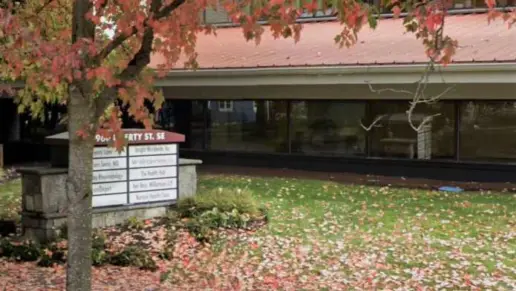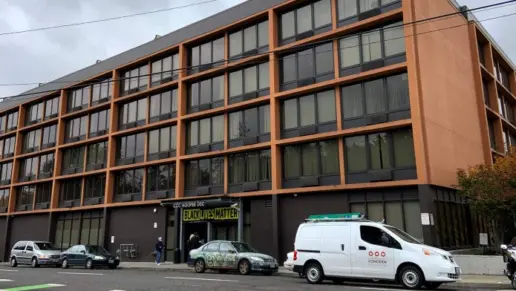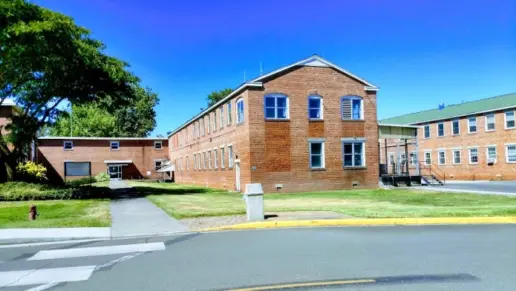I went through Tree House Recovery over 4 years ago, through the tools I learned to help me with my sobriety I have remained sober. The staff worked with me where I was at and helped push me to be the best version of myself I could be. Today I have a fiancee a beautiful daug ...
About Tree House Recovery PDX
Tree House Recovery is a drug and alcohol rehab located in Portland, Oregon. They provide inpatient addiction treatment and sober living for men.
Addiction-related services provided at Tree House include inpatient addiction treatment and sober living facilities for men.
Residential Addiction Treatment
Tree House uses treatment modalities that focus on the personal strengths and needs of the client and has carefully chosen eight signature strategies to help navigate addiction. Their eight modalities include addiction education, process groups, one-on-one therapy, writing therapy, ESM fitness therapy, ABI therapy, yoga therapy, and recovery in action.
Exercise is an important component of Tree House treatment, and individuals are encouraged to think of it as a pathway to healing. This program combines aspects of circuit training and weight training to create a boundary-pushing workout, resulting in confidence and a renewed sense of health. Action-based induction therapy (ABI) targets the prefrontal cortex to treat addiction. ABI therapies include activities that require quick thinking, coolheadedness, and moral decision-making. At Tree House, the activity most often used for ABI therapy is mixed martial arts.
Above all, this inpatient addiction treatment program is individualized to ensure a sustainable recovery that translates to reentering the community.
Rehab Score
Gallery
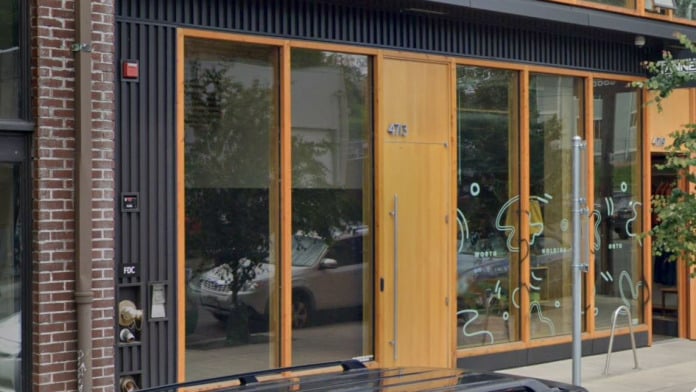
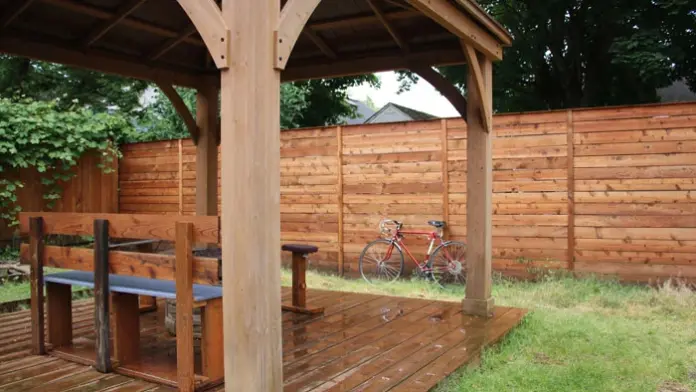
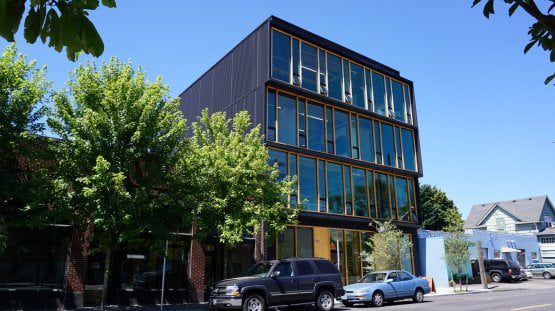
Location
Accepted Insurance
Other Forms of Payment
Private insurance refers to any kind of healthcare coverage that isn't from the state or federal government. This includes individual and family plans offered by an employer or purchased from the Insurance Marketplace. Every plan will have different requirements and out of pocket costs so be sure to get the full details before you start treatment.
Self-pay involves paying for treatment out of your own pocket. You can use savings or credit, get a personal loan, or receive help from family and friends to fund your treatment. If you don't have insurance or your insurance plan doesn't cover a specific program, self-pay can help ensure you still get the care you need.
Military members, veterans, and eligible dependents have access to specific insurance programs that help them get the care they need. TRICARE and VA insurance can help you access low cost or no cost addiction and mental health treatment. Programs that accept military insurance often have targeted treatment focused on the unique challenges military members, veterans, and their families face.
Addiction Treatments
Levels of Care
Treatments
The goal of treatment for alcoholism is abstinence. Those with poor social support, poor motivation, or psychiatric disorders tend to relapse within a few years of treatment. For these people, success is measured by longer periods of abstinence, reduced use of alcohol, better health, and improved social functioning. Recovery and Maintenance are usually based on 12 step programs and AA meetings.
Drug rehab in Oregon offers a full continuum of care for those struggling with addiction. From detox, to inpatient, to outpatient, to aftercare, Oregon residents can find the support they need for recovery. This treatment empowers individuals to replace drug use with positive alternatives and develop a healthier lifestyle.
Opioid rehabs specialize in supporting those recovering from opioid addiction. They treat those suffering from addiction to illegal opioids like heroin, as well as prescription drugs like oxycodone. These centers typically combine both physical as well as mental and emotional support to help stop addiction. Physical support often includes medical detox and subsequent medical support (including medication), and mental support includes in-depth therapy to address the underlying causes of addiction.
Substance rehabs focus on helping individuals recover from substance abuse, including alcohol and drug addiction (both illegal and prescription drugs). They often include the opportunity to engage in both individual as well as group therapy.
Programs



Clinical Services
Cognitive behavioral therapy (CBT) in Oregon is a short term talk therapy method used to treat mental and behavioral disorders. Based on client needs, the therapist may recommend five to 20 sessions. Typically, this form of therapy requires fewer sessions than many other types of treatment.
Process Group, which takes place in a group setting and is guided by a counselor, nurtures clients’ ability to connect to one another by providing space for everyone to share their stories. The community shares in the struggles and triumphs of everyone’s recovery process, strengthening bonds between team members and one’s own sense of belonging and resiliency. Gradually the narrative shifts from isolationist rhetoric and feelings of loneliness to an awareness and emphasis on self care and desire to be there and support others.
Reconnecting with oneself is just as important as connecting with others, and is one of the most critical components of recovery. In One-on-One Therapy, clients will work closely with the therapist to address the root causes of their addiction, and together will they work to remove the factors that predisposed them to chemical dependency. Employing a variety of therapeutic interventions, the key to this process is the empathetic and safe space created by the therapist that fosters the client’s growing understanding of himself, that enables not just sustained recovery and overall wellbeing, but eventual self-mastery as well.
Viewed as a method of communication rather than an intervention, motivational interviewing is an evidence based approach to rehab treatment in Oregon. The principles of this method have a common sense appeal and are readily applied to many therapeutic programs. Core strategies include acceptance, listening, and summarizing.
Trauma therapy addresses traumatic incidents from a client's past that are likely affecting their present-day experience. Trauma is often one of the primary triggers and potential causes of addiction, and can stem from child sexual abuse, domestic violence, having a parent with a mental illness, losing one or both parents at a young age, teenage or adult sexual assault, or any number of other factors. The purpose of trauma therapy is to allow a patient to process trauma and move through and past it, with the help of trained and compassionate mental health professionals.
During family therapy sessions, each member learns to rebuild trust and strengthen the relationships that have been negatively affected by addiction. Family therapists use guided interventions to help members improve their communication skills and interactions, as well as address underlying issues within the family. This helps to create a supportive atmosphere for everyone.
Recreational therapy is often offered within a holistic treatment center that addresses drug and alcohol addiction treatment. It integrates activities like hiking, art, and team sports to improve physical and mental health. These activities give you an outlet to express your emotions and reduce your stress levels while fostering social connections.
Creativity is inherently healing, and can help those in recovery express thoughts or feelings they might not otherwise be able to. Creative arts therapy can include music, poetry/writing, painting, sculpting, dance, theater, sandplay, and more. Unlike traditional art, the final product matters far less than the experience of creation and expression itself.
Experiential therapy is a form of therapy in which clients are encouraged to surface and work through subconscious issues by engaging in real-time experiences. Experiential therapy departs from traditional talk therapy by involving the body, and having clients engage in activities, movements, and physical and emotional expression. This can involve role-play or using props (which can include other people). Experiential therapy can help people process trauma, memories, and emotion quickly, deeply, and in a lasting fashion, leading to substantial and impactful healing.
Amenities
-
Gym
-
Yoga Studio
-
Residential Setting
-
Private Rooms
-
Hiking
Accreditations

State Licenses are permits issued by government agencies that allow rehab organizations to conduct business legally within a certain geographical area. Typically, the kind of program a rehab facility offers, along with its physical location, determines which licenses are required to operate legally.
State License: Oregon

The Joint Commission, formerly known as JCAHO, is a nonprofit organization that accredits rehab organizations and programs. Founded in 1951, the Joint Commision's mission is to improve the quality of patient care and demonstrating the quality of patient care.
Joint Commission Accreditation: Yes
Contact Information
4713 North Albina Avenue
Suite 301
Portland, OR 97217







